
Dec '12 - Feb '13
For her project in the Dirty South Studio, Kasia Zycinska deconstructed the accommodations section of our Atlanta guidebook, exploring the idea of domestic life of the city and how Atlantans depict themselves to the world. Freya Schlemmer and Cynthia Smith interview Kasia about Atlanta's average resident and her creation of the "average" house.
Freya Schlemmer: There are millions of houses in Atlanta. How did you choose which ones to examine?
Kasia Zycinska: I started my investigation by exploring the city's housing through the lens of AIRBNB.com, a website that offers an alternative to hotels, by featuring posts of local residents who provide tourists with bed-and-breakfast-like accommodations. Along the way, the scope of the research grew to include other homes that have been publicized in some way: Atlanta historic homes featured in the “AIA Guidebook to Atlanta,” as well as contemporary houses that have been a part of the Modern Atlanta Home Tour.
Cynthia Smith: So, this research led you to design the "average" Atlanta home. How did you decide to compare and compile all of the data you uncovered?
KZ: The project utilizes methodology of various ways of averaging data: location, the client, the sense of domesticity, and the collective image of home become “averaged out” to create reinterpretation of Atlanta’s idea of domestic life.
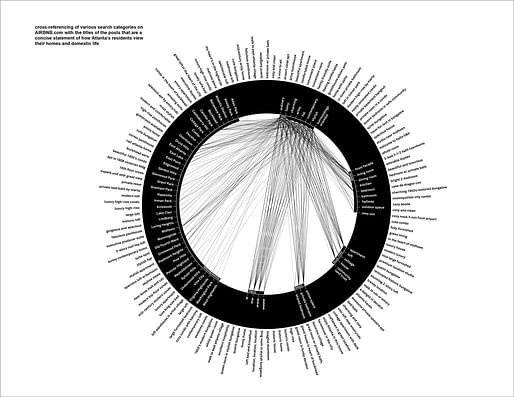 01_ sense of domesticity
01_ sense of domesticity
FS: Did the idea of the average flow through the rest of your decisions for your design, i.e. the way you determined the site and client?
KZ: Yes, the site, located at the east entry to Piedmont Park, is an arithmetic mean of latitude and longitude of all of homes I researched. The client, Jennifer Washington, a 32-year-old African American homosexual high school English teacher, was created as a statistical mode of Atlanta’s demographics. I looked at the AIRBNB posts as a survey of Atlanta’s sense of domesticity, expressing how its residents view their homes and domestic life that, to then determine the main components of the program.
CS: It sounds like this was a consistent methodology factor carried throughout your design process. How were you then able to use the data you collected on the average to inform the resulting architecture?
KZ: The notion of collage became the means for “averaging out” the aesthetics of Atlanta’s residential architecture. The collages are both architectural and generative of architecture. With their transparent qualities, they became three-dimensional, creating new spaces that could be inhabited. The results were a series of sections that depict vignettes of domestic activities from the life of the client. The “average” house becomes a home of collective desires. Thus, a new residential architecture emerges in an awkwardly aggregated form with exaggerated spacial relationships and qualities.
To learn more visit: http://kasia-zycinska.com/Kasia_Zycinska_Design/Architecture/Pages/The_Average_House.html
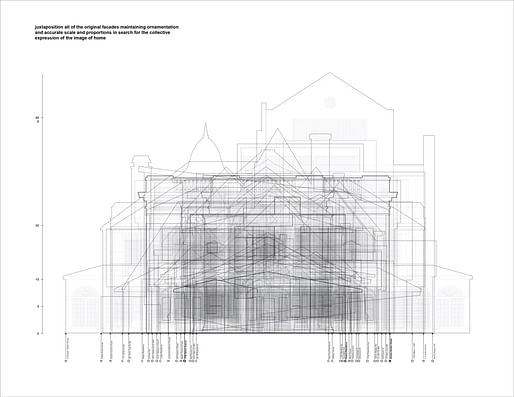
02_ search for the collective image of home
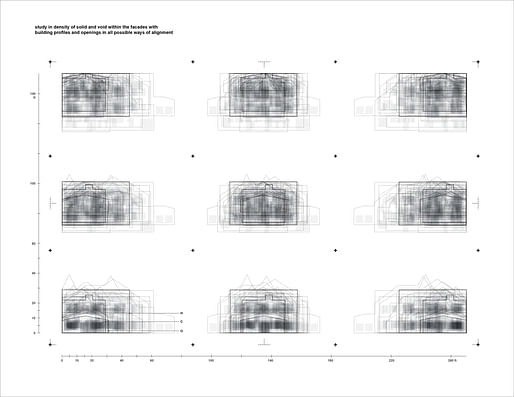 03_ study in density of solid and void
03_ study in density of solid and void
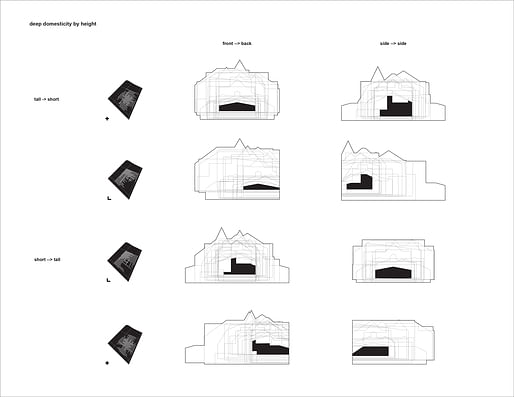 04_ deep domesticity
04_ deep domesticity
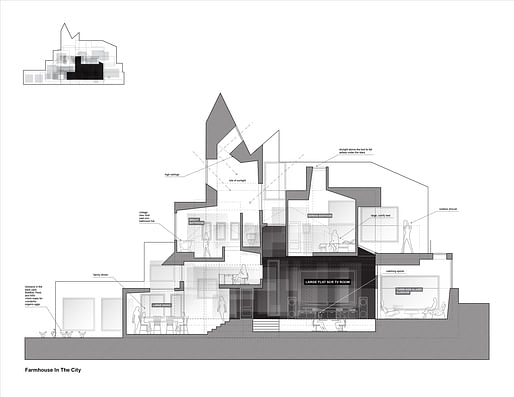
05_ farmhouse in the city
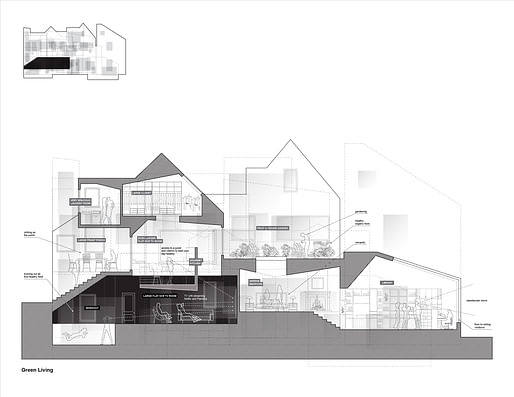 06_ southern hospitality
06_ southern hospitality
An investigation into Atlanta's offbeat landmarks and attractions.



No Comments
Block this user
Are you sure you want to block this user and hide all related comments throughout the site?
Archinect
This is your first comment on Archinect. Your comment will be visible once approved.